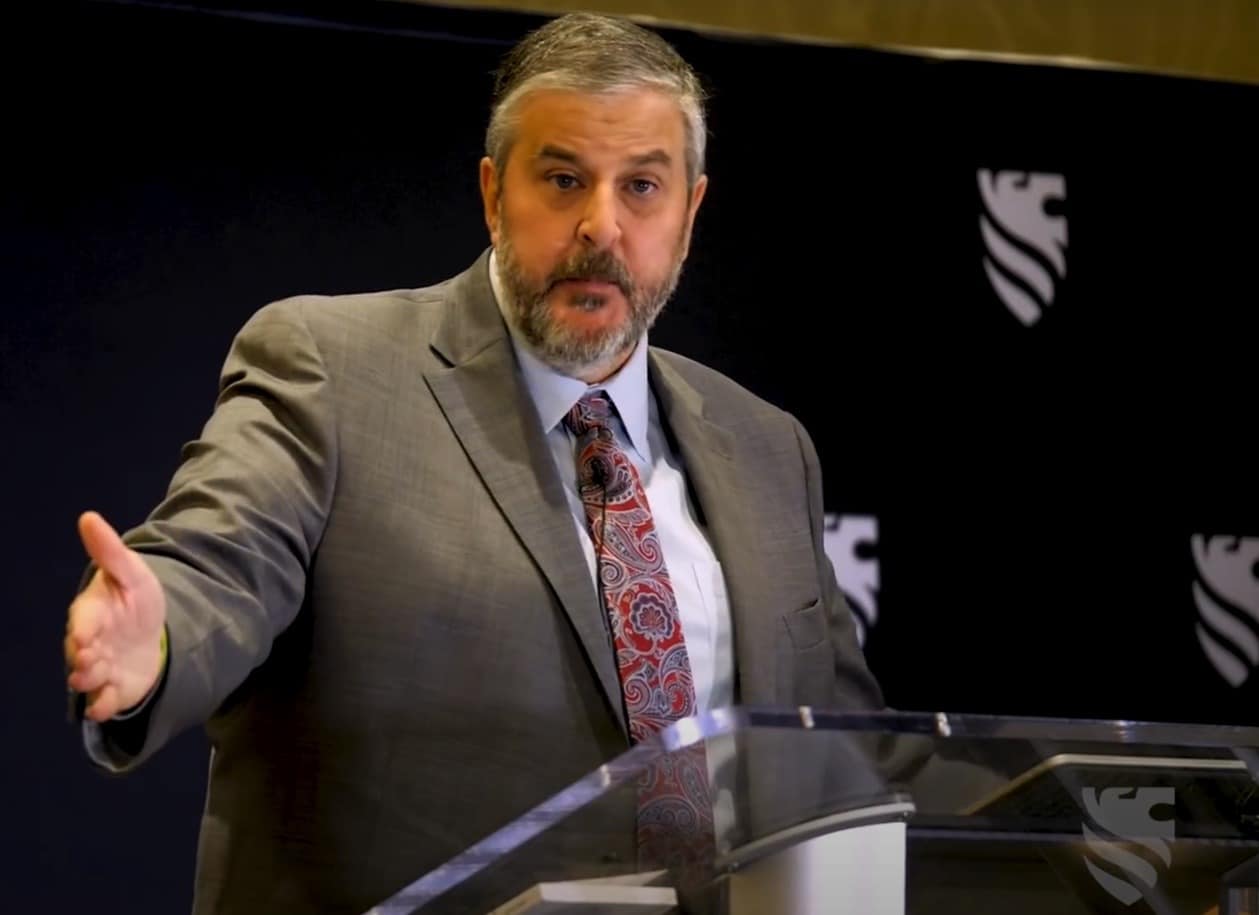One of the commonly used phrases at G3 Ministries is “as goes the pulpit, so goes the church.” We believe that whatever is coming out of a church’s pulpit will shape that congregation more than anything else. This is why we believe that the main role of any pastor is expositional preaching.
I know this is a bold statement when you consider that there is so much preaching today that is not expositional. This is only further compounded by how I define “expositional preaching.” For example, I would not say that exposition is consecutively preaching through books of the Bible. While I would argue that preaching through books of the Bible is the best way to devote yourself to consistent exposition, that doesn’t define exposition. It is possible to preach through the book of Romans in a way that is not exposition. Furthermore, it is quite possible to preach a series that is not going consecutively through a book of the Bible, but it is truly an expositional treatment of the text.
What is Biblical Exposition?
If I were to give a basic definition of expositional preaching, I would simply say this: “The preacher discovers the point of a biblical text and makes it the central point of the sermon.” Therefore, I would expand my earlier claim to state that the main role of any pastor is to preach sermons that derive their main point from the original point of the biblical text.
Taking this definition, most of the preaching in pulpits today is far from expositional. There are countless examples of biblical texts preached out of context. For example, one preacher based his whole Christmas sermon on Matt. 2:8, “Go and search diligently for the child, and when you have found him, bring me word, that I too may come and worship him.” The point of the sermon was for the audience to diligently seek Christ in the Christmas season so that they might worship him. Yet, this biblical text was spoken by Herod who uttered those words deceptively so that he might find Jesus and kill him.
There are sermons preached through various lenses – psychological, therapeutic, political, social. How often have we heard a July 4th sermon on 2 Chronicles 7:14 applied as if it were written directly to America? Recently a sermon went viral on the internet where a preacher took the plagues in Egypt to be equivalent to the social unrest and protests happening in America, and Israel’s exit from Egypt as a way to argue for reparations.
There are sermons that moralize the text without any connection to the original meaning. Consider sermons preached on the story of David and Goliath that was used to teach people how to defeat the giants in their life? One pastor preached a Christmas sermon from the story of the wise men from Matthew to help people set and achieve their goals.
These are all real examples of sermons I have heard preached. In some cases, in my younger days, I am the guilty preacher. Furthermore, in each of these sermons, the original point of the text was ignored and the preacher declared what he wanted to say rather than what God had originally said. I still shudder when I think of the number of times I declared to people a word that was from me rather than from God – words that I put into God’s mouth that he never breathed out. I am offended whenever someone does that to me, imagine how God must feel.
Two Theological Reasons for Expositional Preaching
One of the turning points that led me to an exclusive commitment to biblical exposition was my theological convictions. What you really believe about the Scriptures should be a determining factor in how you preach God’s Word. I came to realize there was an inconsistent disconnect between what I claimed to believe about the Scriptures and how I was handling them. Two things I believed about the Bible turned my preaching completely around.
First, the Bible is totally inspired and inerrant. In other words, I believe the Bible is truly the living words of God. I believe as Paul declared in 2 Timothy 3:16 that all Scripture is “breathed out by God,” and as Peter said that those who wrote the Scriptures were “carried along by the Holy Spirit.”
Simply put, I believe that the Bible is literally God speaking and that we have in our Bibles a fully trustworthy record of what he has said. God did not leave it to our imagination for how to relate to him in this world. God has given us his word as revealed in the Scriptures. And if God has chosen to speak, we should be confident that he has given us a reliable means by which we can now exactly what he has said.
My congregants do not need to hear my voice, they need to hear the voice of God. And the only way I can be sure that they are hearing God’s voice and not mine is to handle God’s Word with the kind of care that gives me confidence that what I am saying in my sermon is what he has said in his Word. This demands biblical exposition. God’s point must be the preacher’s point.
Second, I not only believe that the Bible is inspired and inerrant, I also believe that it is sufficient and authoritative. This, I believe is the great battle in our day. We are inundated with sermons that originate in the mind of the preacher regarding the perceived felt needs of the people. The reality is that often people’s deepest needs are not their perceived needs. We must believe that God’s Word is completely sufficient to meet each and every one of our needs.
Consider Jesus who lived his life in full submission to the Scriptures. He often responded to his detractors with the words, “have you not read…” When tempted by Satan, he battled with three deft quotations from Deuteronomy. His summary response to Satan was that man shall not live by bread alone but by every word that proceeds from the mouth of God. Could a more clear statement be made about the sufficiency of Scripture?
My problem is that I am tempted to think that the bare Word of God will not connect with people; I need to somehow make the Word of God relevant. I think I understand people better than God does, who created them. Postmodern people really connect with inner directed experience conveyed from the pulpit. They need to hear what is on my heart. In other words, I am tempted to think God’s Word is not sufficient.
However, if I believe God’s Word is sufficient, my congregants do not need to hear my thoughts and ideas, they simply need to hear what God has said in his Word – no more and no less. This demands biblical exposition.
A Bold New Commitment to Exposition
I still remember the day when I realized I had been failing to do what my main job was to do as a pastor. I was giving lip service to the doctrines of inerrancy and sufficiency, but my preaching exemplified that I did not really believe what I claimed. I was handling the Word of God fast and loose. I realized that the pulpit had become a place for my voice to shape the people rather than the exclusive voice of God.
I repented before God and committed myself to the discipline of solid biblical exposition. I desired to do everything within my power to never preach another sermon that originated in my mind, but came from the very mind of God as revealed in His Word.
I think if you really believe the Scriptures are inerrant and sufficient, you will seek to never preach another sermon that does not handle the Scripture in an expositional way. You will strive to be faithful to the end to let the Word of God do the work of God with a pastor’s heart who holds out the Scriptures as the sufficient source for our lives. But this will not come without hard work, discipline, and the encouragement of others who are also committed to this great task.
This is what excites me to serve as the director for G3 Expository Workshops. Our passion is to train men to handle the Word of God in an expositional way. We echo the words of Paul to Timothy for the preacher to “be diligent to present yourself approved to God as a workman who does not need to be ashamed, accurately handling the word of truth” (2 Timothy 2:15). Therefore, our workshops are structured to help educate you to understand why biblical exposition is necessary, equip you to do biblical exposition, and encourage you that this great responsibility can be done.
I invite you to join us this year for a expository preaching workshop and commit yourself to being better equipped in the task to which God has called you.




